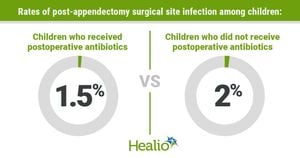Belgium appears to be on the cusp of significant economic growth, as several sectors demonstrate promising developments and investment opportunities, particularly the burgeoning Buy Now Pay Later (BNPL) market and the hopeful revival of its semiconductor industry.
According to ResearchAndMarkets.com, the BNPL market in Belgium is projected to grow by 12.6% annually, reaching approximately $3.77 billion by 2025. From 2021 to 2024, the sector witnessed a remarkable compounded annual growth rate (CAGR) of 21.7%, with expectations to maintain solid growth at 9.0% CAGR from 2025 to 2030. This growth reflects changing consumer behaviors and the increasing adoption of BNPL services across various sectors.
The BNPL report outlines various market dynamics, including comprehensive analyses of retail categories, sales channels, and consumer behaviors, using over 75 key performance indicators (KPIs) to provide insights to stakeholders. The report emphasizes how businesses can leverage these insights to navigate future market directions and growth opportunities.
Offering yet another glimpse of Belgium's economic resilience, the last remaining semiconductor manufacturer, BelGaN, is reportedly moving toward a restart. After declaring bankruptcy last year, BelGaN's receivers have entered negotiations with potential buyers, hinting at renewed hope for the renowned manufacturing site located in Oudernarde. These discussions have revealed three candidates who are likely to submit their final offers soon.
The significance of relaunching BelGaN cannot be overstated, especially following the political turmoil accompanying its closure, which was rooted in the wider circumstances of global semiconductor shortages. The revitalization of this facility is seen as not only a chance for economic recovery but also as imperative for sustaining Belgium's future semiconductor industry.
BelGaN produces gallium nitride-based semiconductors primarily for the automotive sector—making it distinct from the more prevalent silicon. If negotiations are successful, it is anticipated the new operation could generate around 100 jobs initially, with plans for future growth, thereby benefitting local economies.
Meanwhile, on the retail side of things, French fashion discounter Kiabi has reported impressive growth, achieving sales growth of 5% across its operations, fueled by a substantial 24% increase within Belgium alone. During what has been regarded as a challenging year for the fashion industry, Kiabi's growth can largely be attributed to strategic store expansions and enhanced marketing efforts.
Kiabi opened its first franchise store near Liège in April, followed by another branch opening later in the year. Also noteworthy is the brand's expansion within seven Belgian hypermarkets, leading to increased visibility and accessibility to consumers. Mathieu Loyez, Digital Marketing Team Leader at Kiabi, emphasized, “The growth is not only due to expansion,” highlighting the brand's comprehensive approach to capturing market share.
On another front, De Lijn, the public transport operator, is making strides toward eco-friendly transport solutions. They have recently placed orders worth €24.2 million for up to 1,600 charging stations, as they plan to transition their fleet to fully emission-free vehicles by 2035.
With 403 charging stations already included under this order to SPIE-Ekoenergetyka, De Lijn is committed to building the necessary infrastructure for electric buses across its operational depots. Ann Schoubs, Managing Director of De Lijn, stated, “Charging infrastructure is a vitally part of greening our fleet,” underlining the urgency behind these investments. Minister of Mobility, Annick De Ridder, also asserted, “If public transport is to contribute to good air quality, De Lijn must also invest in the necessary charging infrastructure for e-buses.”
Belgium's diverse economic developments—from the burgeoning BNPL sector to renewed semiconductor manufacturing and ecologically driven public transport initiatives—paint a picture of resilience and innovation. These stories highlight the country's ability to adapt and grow, promising potential benefits for its economy, industries, and consumers alike.



